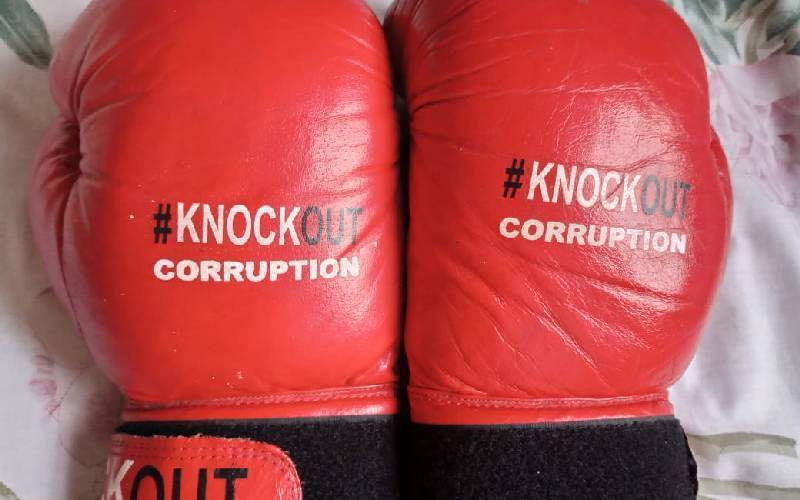
The world this week is reflecting on a scourge that is hurting humanity - fraud. The week is dedicated to victims of fraud. This is a time to reflect on fraud’s impact in our society and to call for all to create awareness and to fight it.
In Kenya, the government has made efforts to fight corruption through institutions such as Ethics and Anti-Corruption Commission, which started as the Kenya Anti-Corruption Authority in 1997.
The efforts have helped to create public perception of a government that is alive to the fight against fraud. But has the will ever been there? Are the tools employed in this fight responsive to the task and technological changes?
A quarter century down the line, the number and magnitude of new fraud and corruption cases reported daily paint a grim picture. It is for this reason we join the Association of Certified Fraud Examiners (ACFE) in asking questions regarding the fight against the scourge.
A common lie is that it is the government’s responsibility to fight fraud. When we talk of the government, who is the government? When we talk of cartels, who are the cartels? These are individuals who have been bred in the culture of corruption; individuals who believe that the only way to success is through fraud. This fight belongs to the citizens. Yes, you and I. It is our eroded social fabric that makes parents to collude with teachers to steal exams for their children. Over-reliance on strategy, beautiful policy frameworks and countless boardroom interactions will yield nothing if we don’t focus on our ethical culture.
Fraud prevention, detection, training and awareness are critical if we are to eliminate the vice. With advancement in technology and the increasing sophistication of fraudsters, traditional methods of combating fraud are less effective. As a result, organisations and individuals need to stay ahead of these evolving threats by adopting proactive measures.
Prevention plays a crucial role in minimising the occurrence of fraud. Implementation of robust internal controls such as segregation of duties, regular audits, and strict access controls will minimise fraudulent activities. Additionally, individuals should be vigilant and cautious while sharing personal information online or conducting financial transactions. Organisational culture, fraud policy charters and well-designed whistle-blowing structures should be well communicated and monitored at determined levels.
Prevention alone is not enough and detection mechanisms are equally important. Advanced analytics and artificial intelligence can be leveraged to identify suspicious patterns and anomalies in financial transactions, enabling early detection of potential fraud. Real-time monitoring systems can alert stakeholders to any unusual activity, allowing them to take action.
Furthermore, raising awareness about different types of fraud and the schemes employed by fraudsters is crucial, cheaper and effective. Education and training programmes can help individuals and organisations to avoid fraud.
During this Fraud Week let us reflect on the cost of fraud and appreciate the role we can all play to reduce its impact.
Mr Odhiambo is a member of ICPAK, IIAK and also ACFE
 The Standard Group Plc is a
multi-media organization with investments in media platforms spanning newspaper
print operations, television, radio broadcasting, digital and online services. The
Standard Group is recognized as a leading multi-media house in Kenya with a key
influence in matters of national and international interest.
The Standard Group Plc is a
multi-media organization with investments in media platforms spanning newspaper
print operations, television, radio broadcasting, digital and online services. The
Standard Group is recognized as a leading multi-media house in Kenya with a key
influence in matters of national and international interest.
 The Standard Group Plc is a
multi-media organization with investments in media platforms spanning newspaper
print operations, television, radio broadcasting, digital and online services. The
Standard Group is recognized as a leading multi-media house in Kenya with a key
influence in matters of national and international interest.
The Standard Group Plc is a
multi-media organization with investments in media platforms spanning newspaper
print operations, television, radio broadcasting, digital and online services. The
Standard Group is recognized as a leading multi-media house in Kenya with a key
influence in matters of national and international interest.









